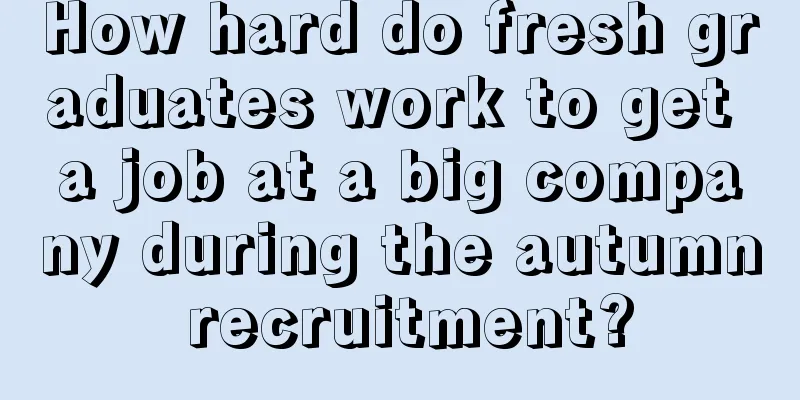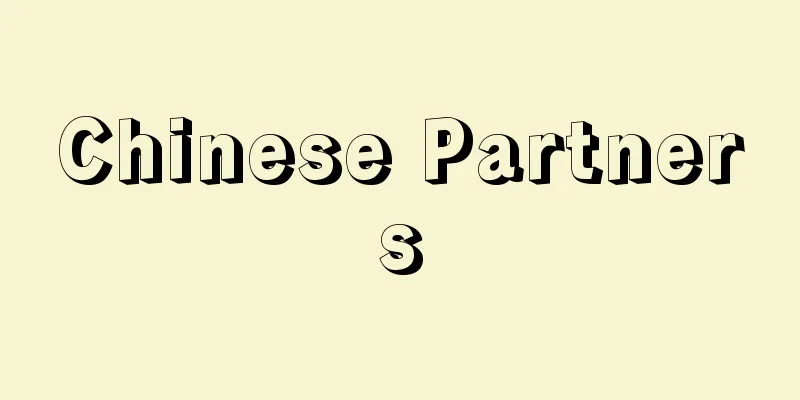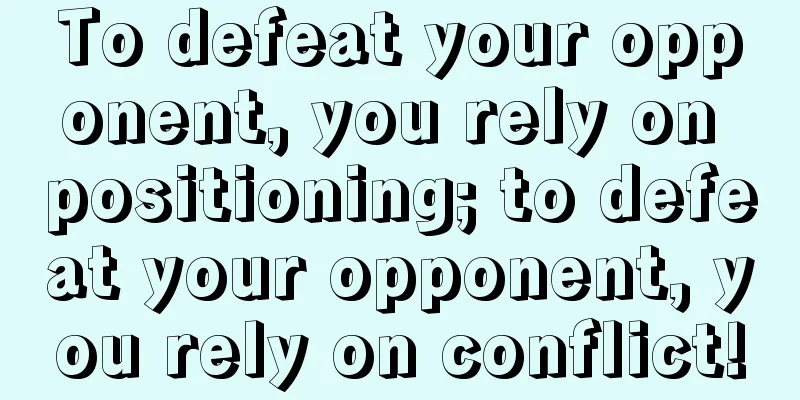How hard do fresh graduates work to get a job at a big company during the autumn recruitment?

Fresh graduates are brave enough to join big Internet companies. The 2023 autumn recruitment of major companies is coming to an end, and some job seekers are happy while others are worried. Some people have 5 offers in hand, and all top companies have given them the green light, so they have the initiative in job hunting. Some netizens joked that the highlight of the autumn recruitment is to gather BAT (ByteDance, Alibaba, Tencent). Some people have not received an offer in this autumn recruitment so far, and are wandering between staged excitement, anxiety, and confusion. The autumn recruitment of large companies is one of the earliest job-seeking opportunities for fresh graduates every year. Being able to get an offer early means more choices and being able to cope with studies more calmly. In order to provide reference for more people, "Dingjiao" talked with 5 fresh graduates who successfully got hired in this year's autumn recruitment and talked about their experiences in the autumn recruitment of large companies. The autumn recruitment of large companies is always very competitive. Among the job seekers, there are many graduates from 211 and 985 universities, as well as returnees from famous universities. Moreover, many people have started internships in large companies very early, laying the foundation for their landing. Even so, many people still have to submit hundreds of resumes in the autumn recruitment, interview with dozens of companies, encounter challenges during the interviews, and wait anxiously for responses. When they finally land a job, each of them feels relieved. According to their experience, if you want to successfully get an offer from a big company, lowering your expectations, doing enough homework, and avoiding involuted positions are all effective ways. At the same time, you should do an internship early while in school, and think, summarize, and review during the internship to precipitate your own methodology and fully demonstrate your potential in this area during the interview. In addition, the autumn recruitment is the first wave of opportunities after all, so don't lose confidence even if you are rejected. It is also important to have a good attitude and be thick-skinned. Here are their stories. 1. Lay a solid foundation through internships and avoid involutionary positions. It is more important to compete on strategy than on execution in autumn recruitment.Xiaoyue|24 years old, Shanghai After intensive interviews with nearly 20 companies from July to September, I received five offers from Meituan, Kuaishou, ByteDance, and two game companies in early October. I majored in science at a 211 university for my undergraduate degree. Because it required a high level of math and programming skills, I found that this was not an area I was good at or interested in, so I chose to take the postgraduate entrance examination in a different major and entered a 985 university to pursue a master's degree in journalism. During the fall recruitment period, my competitors all had better resumes and more impressive academic qualifications, some of whom graduated from Ivy League schools, and some of whom had PhDs. I think the reason why I was able to get the offer relatively smoothly is because I completed my professionalization process in advance. When I was studying for my master's degree, I completed all the credits in my first year, and from June last year to now, I have been doing internships non-stop without a single day of rest. Before I started my internship, I had no experience in the Internet industry and no experience in business positions . In order to quickly gain experience and find a suitable position, I interned in different positions in companies in different fields. I first worked in an Internet company doing market data research, and after the internship, I immediately moved to a fast-moving consumer goods giant to do marketing, and finally worked in a game company doing performance advertising. These internships lasted from April to June, which was enough time for me to become familiar with the work at hand and understand the job logic of the position. It also laid the foundation for my autumn recruitment. I have to admit that this year's autumn recruitment was very competitive. Many companies stuck to the final round of interviews, and some large companies went through the autumn recruitment interview process, but in the end gave internship opportunities. During the internship, I confirmed that I wanted to work in performance advertising at an Internet company. When most fresh graduates might not be aware of the existence of such a position, I decided on this more vertical position. After many rounds of interviews, I found that those who received more offers in this year's autumn recruitment were those with relevant practical experience. When I was working in performance advertising at a game company, I was lucky that my boss gave me full trust and let me independently manage a tens of millions of level advertising budget. I experienced the launch of two new games and the promotion of old games, which exercised my ability to solve problems that I had never seen before. For a campus recruit, I am relatively experienced. During the internship, I also paid more attention to training my ability to learn and understand business logic. If you only do daily auxiliary and execution work during the internship, even if you intern in different large companies, the experience will be relatively repetitive, and you will not have such a complete understanding of the business, which will put you at a disadvantage during the interview. Since my first internship, I have gone through no less than 60 interviews. Compared with the first interview, I have been able to change the "exam-oriented mindset" of a student and look at the interview with the mentality of "changing jobs". When preparing for the interview before, I would sort out all the interview materials from websites such as Xiaohongshu, Niuke.com, and Maimai and recite them mechanically. Now I will carefully observe the job recruitment JD (job description) of the interview company and prepare for the interview based on the job content and ability requirements. At the same time, different internship experiences enriched my "corpus accumulation". I would apply what I usually communicated with leaders in the company to the interview. For example, a leader once told me that their requirement for campus recruits is to use his growth potential to bring unprecedented experience to the team. I would express this view to the interviewer. In fact, the interview is also a process of continuous growth. Of course, the internship and autumn recruitment process was not all smooth sailing. During the autumn recruitment period, I was interning, interviewing, and preparing for my thesis. I was tortured by the triple pressure many nights and broke down and cried. During the interview process, I also had the experience of being rejected after being compared horizontally. I have always believed that the first lesson for people on the road to growth is to learn to know themselves, not to be diligent in execution and lazy in strategy. From the beginning, you must make "counter-intuitive" choices, not to choose the direction in which you have the most advantages and are in your comfort zone, but to choose the direction with more room for development and easier success. 2. I was "fished out" by a big company halfway through, so I have to take every interview seriouslyCoconut | 24 years old, Hong Kong, China From the beginning of September when I sent out my first resume to now, I have sent out nearly 60 resumes in total, and most of them were ignored. I am a master's degree holder from the Hong Kong Polytechnic University. I would like to join a large company because they have flatter management, better salary and benefits, and with the support of a well-known company, my future development opportunities will be broader. For more than a month, I spent almost every day, except for classes, eating and sleeping, submitting resumes and taking assessments . I even gave up for a week. I was very anxious for a while. When I didn't get a response, I would fall into self-doubt, which was very exhausting. I also applied to some small and medium-sized companies, but the results were not very ideal. At that time, I comforted myself by saying that there would always be an offer, it was just a matter of time. Later, I gradually became more open-minded, because I found that it was normal for no one to respond. In the first week after the National Day holiday, I suddenly felt like my luck had turned, and I received several interviews one after another. In the second week, the first and second interviews with a new energy vehicle company went very fast. When I was scheduling the third interview with the big leader, my mood also fluctuated. I stared at my phone every day to see if I had received any information about the third interview, but I could only comfort myself that "slow work will pay off." Unexpectedly, during this period, I received another interview invitation from a large e-commerce company, and was transferred from my previous department to a new department. Maybe my previous interview review was not bad, so I have to work hard to face every interview. After two weeks of intense interviews, I finally got an offer from this car company, and a few days later I received an offer from a large e-commerce company. These two companies are in line with my initial expectations. The salary is not yet clear and may not be known until next month. In fact, under the current circumstances, the students who enter the interview stage are all very outstanding, and everyone's resume is very exciting, so it is very important to leave an impression on the interviewer during the interview. But I think I got the offer because of luck. Sometimes, in a group interview, almost all 10 people are graduates from prestigious universities. September is basically the home of job seekers, and they are quickly locked in. The opportunities they don’t want may go to us in the second tier. The most important experience I have learned is to do enough homework before the interview. Education and internship experience are hard requirements for resume screening . I previously had an internship experience of about 6 months at ByteDance, which played a certain role. I usually start preparing formally after getting an interview, collecting company information from various channels, reading industry news, and giving the interviewer a persona that knows the company very well during the interview . This is very important. 3. I applied for 5 internships and got 5 offers from 6 big companiesChen Yu | 24 years old, Hangzhou I am currently studying for a master's degree and will graduate in April next year. My major is computer science, and I am looking for a product position in a large company. This fall, I applied to six leading companies, got interviews in all of them, and finally got five offers, including Alibaba, Tencent, ByteDance, etc. The first offer I got during the fall recruitment was for a summer internship, so I had a backup option after the summer. I applied to a few more companies later mainly to prove myself, and to give myself more options and the confidence to negotiate salary. I was rejected by only one of the six companies. At that time, I encountered a pressure interview, but I felt that the other party was just making personal attacks. At that time, the interviewer asked why a certain project had that indicator. I said that this was the indicator of my leader and I was his intern. He asked if I thought this indicator was reasonable. I said it was not reasonable and explained my point of view. He asked why you didn’t agree with this indicator but didn’t say it out loud. You are not real enough and you are disguising yourself. I think whether the indicator is reasonable or not, it is not something that I, an intern, can change. We had a heated discussion about this for 20 minutes. I felt that he was obviously trying to make things difficult for me, so I argued back. In the end, we were both very unhappy and of course I didn't pass the interview. There are also cases where the interview went very smoothly. I had rejected the offer of a certain leading company three times when I was looking for an internship. I always thought that I didn’t leave a good impression on them and might not be hired. Unexpectedly, not long ago, I saw a senior’s team recruiting people, so I submitted a resume. I interviewed five times in four working days and passed it smoothly. At present, I have a clear choice in my mind. The large company I chose will offer me an annual salary of about 350,000 to 400,000 yuan. The highest offer gives me an annual salary of 500,000 yuan, but I pay more attention to team atmosphere and business development. I am a person who needs emotional value very much. My boss during my internship was the same type as me, and most of the people in our group were also very empathetic to each other. The team was young and the atmosphere was very good, so even though the salary was not the best, I still chose this place. Regarding the factors for entering a large company, I think academic qualifications are the foundation. I studied undergraduate at an ordinary 211 university in a non-first-tier city, and studied for a master's degree in Hong Kong. Generally speaking, if you are from an ordinary 211 university, it is difficult to get involved in the core business of a large company. Good positions basically require a bachelor's and master's degree from a 211 or 985 university, as well as internship experience in the corresponding business. I started interning at big companies when I was a junior, and had five internships in total at companies such as Alibaba, Meituan, and NetEase. In the early days, I couldn't even figure out the relationship between Internet operations, products, and markets, and I sent out resumes randomly, and I couldn't even understand the interviewer's questions. After that, I asked some seniors or seniors in the job search community for advice, read the books they recommended or the documents they summarized, and then reviewed and summarized while interviewing. Even so, my first two internships were basically ineffective. They were just my way of overcoming the information gap. Because I didn’t know anything about the Internet at the beginning, I could only try to see what I wanted to do there. My truly effective internships were the last three paragraphs. Once I had found the right direction, I could just study in a targeted way. I only wrote the last three paragraphs in my autumn recruitment resume. I don’t think the number of internships is critical. The main thing is to learn something. I think the gold content of the last three paragraphs is enough. My advice is that if you want to get into a big company, your internship experience must be vertical. Technical fields may require real skills and it is not too late to do an internship a little later. For non-technical fields, you need to do an internship a year and a half in advance to prepare. The key factors for campus recruits to be accepted are intelligence and potential. My internship boss talked to me about similar topics. He said that he would not expect you to create much value right after you come in. He expects to see someone who is eager to learn, has potential, is very smart, and can gradually improve himself and create value. How to demonstrate your potential? I think you should get the boss's attention in the projects during the internship. The boss must have expectations when assigning tasks. If everything can exceed his expectations, he will like you very much. Some tasks cannot exceed expectations, but you must also show a sincere attitude. To show your potential during an interview, you need to think deeply about the interview questions, or show what methodology you have developed after thinking, summarizing, and reviewing during your internship, rather than just talking about what you have done . In fact, you need to develop these into your own work habits, so that you don't need to deliberately show them during the interview, and people will always notice them. 4. The interview pass rate is 90%. Act early, prepare more, and learn to review.Lydia | 22 years old, Hong Kong, China Next year I will graduate with a master's degree in marketing from the University of Hong Kong. I started sending out my resume at the end of July this year. People always say September and October are the golden months, but I feel that this year is July and August, because when I just started to apply, many people had already entered the interview stage. I realized that I was still late to act, and I became anxious. So I applied from morning to night. Roughly speaking, I sent out about 100 resumes in two months. I have received interview opportunities from more than 20 companies and received offers from 5 major Internet companies. I am still waiting for the final reply from several companies. The interview pass rate is 90%. Although I got the offer, many people who study marketing want to join the leading beauty and fast-moving consumer goods companies, such as Procter & Gamble and Estee Lauder, including me. However, this kind of company attaches great importance to internship experience in vertical industries, which I lack. So when I submitted my resume, I did not choose Estee Lauder's hottest marketing department, but turned to its e-commerce department, but still failed. Last year, I participated in a L'Oreal competition. With zero foundation, our team completed everything from market research to product design and modeling, including the later marketing plan, which can be regarded as a breakthrough from 0 to 1. In the end, we won the top 50 by combining the creative points with the market pain points. This also allowed me to get the green card for the L'Oreal interview, allowing me to skip the AI interview (online application selection) and VI interview (English short video selection) and go directly to the group interview, but I ultimately did not pass. In order to enter the fast-moving consumer goods industry, I spent 800 yuan to sign up for a class . The course teaches people how to write a resume, revise a resume, introduce themselves, group interview skills, etc. It also has a teaching course on P&G's Eight Questions (8 classic interview questions designed by P&G's human resources experts). The teacher will use specific examples to break down these questions. At the same time, I also spent money to find an employee of this company on the Internet and conduct a one-on-one mock interview . After listening to my interview, he gave me some comments and feedback. It cost 160 yuan for half an hour . The effect was there but limited. During this period, I experienced interviews with leading companies in various industries and found an interesting point: the difference between each industry can be reflected in the interview style. For example, P&G likes to ask about details. How many steps were involved in doing this case? What difficulties were encountered? How were they solved? They will ask and follow up. Therefore, many interviewers will write tens of thousands of words in preparation in order to make full use of the details. In the Internet industry, people are more accustomed to asking about the results, such as what was done? What data indicators were achieved? But it also depends on the specific branch. For example, I once encountered a stress interview with a small company. The interviewer talked to me for more than an hour and questioned me the whole time, questioning my operation methods of each project and the credibility of the data, which made me very uncomfortable. This autumn recruitment went smoothly for me. I have received offers from several large Internet companies, but there is a certain gap between the positions and salaries. I am still struggling with how to choose, should I find a company that is busy and profitable, or a company that is slightly less busy and pays less. But my selection criteria are very clear. The first consideration is the position. After all, I still want to do marketing work. Secondly, salary and growth potential are also important. After the entire fall recruitment process, I have summarized three points of interview experience and skills for large companies. First, submit your resume as early as possible and as many times as possible . If you wait until September to start, your progress will be much slower than others, and you may not even receive an offer. Second, do more preparation . Make a list of questions that are often asked in interviews and prepare your own drafts in advance. The third is to learn how to review. For example, I always record the interview process, which allows me to discover many of my own problems, such as using a lot of modal particles inadvertently. This method also helped me find my own advantages in group interviews. Because group interviews involve different roles, such as leaders, timekeepers, and advisers, I found that I was not very good at summarizing, but I was quite logical and had advantages in coming up with frameworks and finding loopholes, so I would generally use these points to get the interviewer's attention. The results were also very good. Except for Estee Lauder, I passed all other group interviews. 5. 100 resumes in exchange for 4 offers. The lesson is that you need to have a good attitude and thick skin.Qi Xia | 24 years old, Beijing I am a 211 university graduate, majoring in media, and I received 4 offers this fall, including from Alibaba, Meituan, ByteDance, and a large fast-moving consumer goods company. In addition to the hard requirements such as academic qualifications and internship experience, I think the mentality is what counts in the campus recruitment process. Due to personal health reasons, I did not prepare early and only started sending out my resume in August, mainly to large Internet companies that I paid more attention to, but there was no response. This surprised me because I thought I had quite a lot of internship experience, having had three internships at large companies in my sophomore and junior years. Seniors told me that I must apply early for the autumn recruitment, because the selection becomes stricter as time goes by. In the first few batches, because there are fewer resumes, they may just take a look at them, but in the later batches, they will set some rigid standards to strictly screen people. After reading a lot of campus recruitment experience posts, I slowly adjusted my mindset: As campus recruits, we actually need to learn the mentality of large companies. Large companies’ campus recruitment is about “casting a wide net” and strict screening to build talent reserves, so we shouldn’t have too many concerns when submitting our resumes. In early August, I took a few days to apply to large Internet companies and some small companies. My strategy was to apply as soon as they were open. In total, I submitted nearly 100 resumes. In fact, the graduates of the class of 2024 have advantages. I found that the market of the top Internet companies this year is better than last year. The number of HCs (Headcount) in the autumn recruitment is obviously increasing. After the structural changes of some large companies, we can try more directions. Of course, the intensity of campus recruitment has not decreased at all. In mid-August, I finally got some good news and started taking online tests for big companies. Because my resume had not been accepted for a while, I was quite depressed at the time. Fortunately, I had consciously practiced before, so I was more confident when I took the written test. During the interview process, I also experienced a mental struggle. I participated in more than a dozen interviews of various sizes, both online and offline, and my only experience with this part of the interview process is that "you need to be thick-skinned." I am a person who is good at written expression but average at oral expression. Because I think I have a weakness in speaking, I am not very confident. Especially in the first few online group interviews, I couldn't get a word in. Some interviewees spoke in a chaotic manner. I also wanted to interrupt them, but I was worried that I would appear impolite, so I lost a lot of opportunities. Later, I started to interrupt others. No matter how the content was, I had to be in the right momentum first. As a result, the more fully I expressed myself and the more confident I was, the higher my pass rate was. After two months of torment and hard work, I am quite satisfied with the result of receiving 4 offers. Campus recruitment is a protracted battle and also a battle of mentality. It is possible that no one is interested in you today, but don't panic. Take a long-term view. What belongs to you may be late, but it will not be absent. At the request of the interviewees, Coconut, Xiaoyue, Chen Yu and Qi Xia are pseudonyms in this article. Author: Bruce Wen Gu Xing Xing Han Mo Xiang Yuan Source: WeChat public account "Dingjiaoone (ID: dingjiaoone)" |
<<: Analysis of the hot articles in Xiaohongshu in October
>>: Cha Yan Yue Se has been overtaken by Ba Wang Cha Ji. Where is its bottleneck?
Recommend
What does Amazon infringement mean? What should I do?
Some Amazon sellers have been operating their own ...
To interpret the data, I found a very useful seven-step standard method
In our daily lives, we always see various data tab...
What are the key points of Shopee operation optimization? What are the operation skills?
With the rapid development of the e-commerce indus...
Where is the entrance to Shopee Live? How to apply for Shopee Live?
No matter which platform you open a store on, merc...
How do new sellers on Amazon Europe choose products? Methods and techniques for selecting products
For new sellers, choosing the right products to se...
How to transfer an Amazon store? What information is required for transferring an Amazon store?
In some cases, sellers may need to transfer their ...
Will the advertising industry still be good in 2023?
According to Buffett's concept of "corpor...
What is the difference between an Amazon Professional Seller and an Amazon Individual Seller?
The threshold for opening a store on Amazon is act...
Public accounts promote "fair" iterations, but instead enter an era of chaos
Although short videos, live broadcasts and other c...
Tik Tok traffic self-closing loop is accelerating
Recently, Douyin has updated a number of merchant ...
What are the fees for individual cross-border e-commerce? How can individuals do cross-border e-commerce?
With the rapid development of cross-border e-comme...
The “first bite of crab” of Xiaohongshu e-commerce, 9 yuan with free shipping, is it really tempting?
Since last year, small-scale merchants have begun ...
13 valuable practical experiences in the current consumer goods market
In this article, I will share 13 very valuable pra...
How to cancel Amazon Global Selling? How to close it?
Among cross-border e-commerce platforms, Amazon an...
What should new sellers sell on Amazon? What products are good to sell?
As a new seller, joining the Amazon platform is a ...









